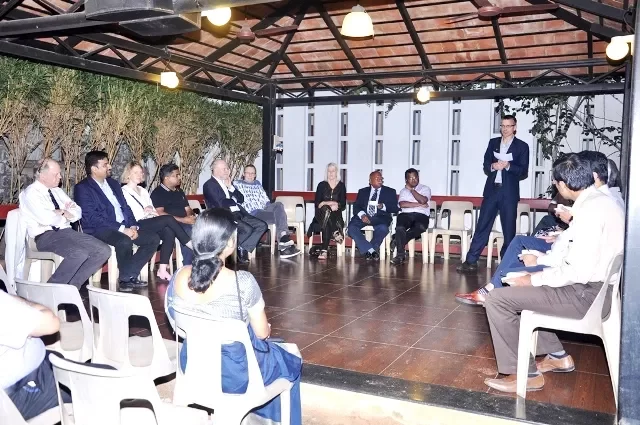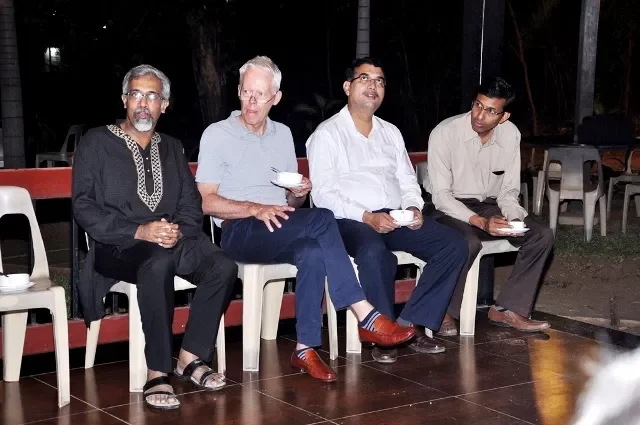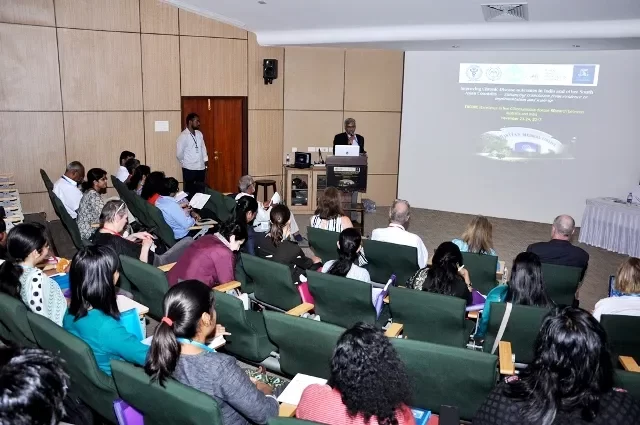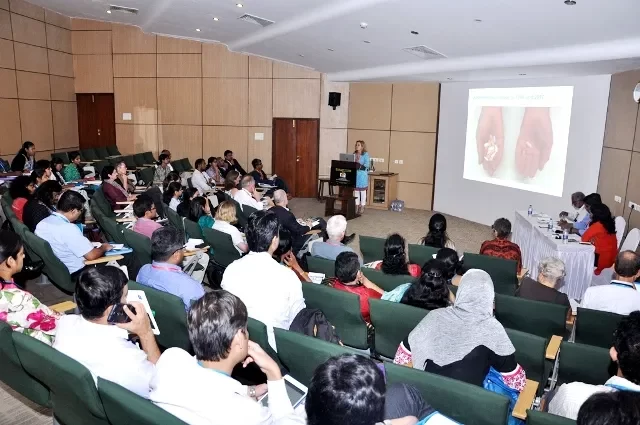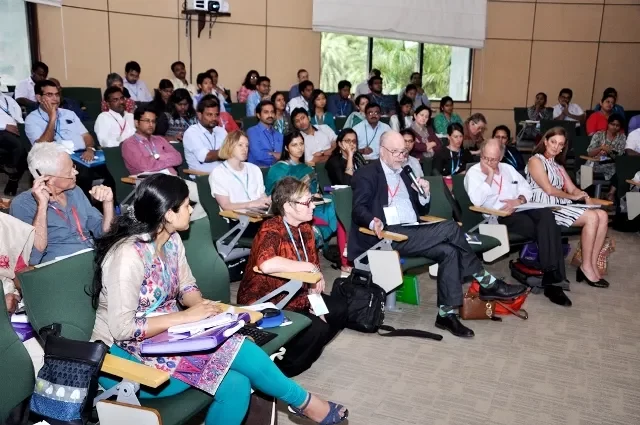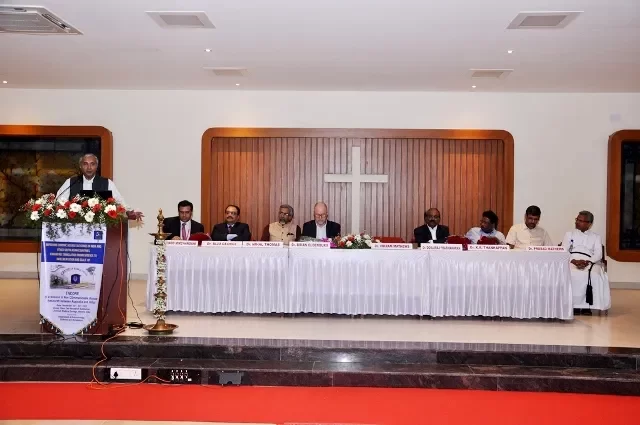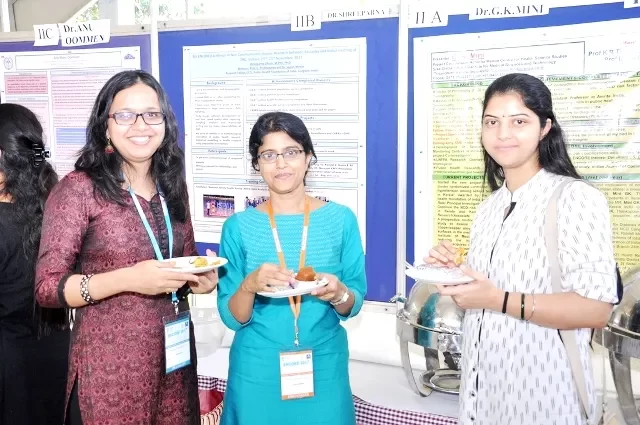Related Links
CONFERENCES / SEMINARS
- VEIC 2025
- ESI 2017
- ENCORE 2017
- ISMBR 2015
- TUMOUR SYMPOSIUM 2013
- ESICON 2010
- WINTER SYMPOSIUM 2010
- WINTER SYMPOSIUM 2005
- CME ON THE FOOT IN DIABETES 2023
- ENDO MASTERCLASS 2019
- RESEARCH METHODOLOGY 2017
- SYMPOSIA AT JAFFNA 2017
- CME IN ENDOCRINE DISORDERS 2017
- PRAG MGT OF DM CARE 2015
- LIFESTYLE PROSP PROJ FOR SCH TEACHERS
WORKSHOPS / CME's
 Improving Chronic Disease outcomes in India and other South Asian Countries — Enhancing translation from evidence to implementation and scale-up
Improving Chronic Disease outcomes in India and other South Asian Countries — Enhancing translation from evidence to implementation and scale-up
ENCORE (Excellence in Non COmmunicable disease Research between Australia and India)
November 23-24, 2017
Venue: Stem Cell Research Auditorium,
Christian Medical College, Vellore, India
Understanding the burden of diseases and their causes is a major input guiding health decisions and health planning processes in a country. In 2016 the most common cause of death in India was heart disease whereas in 1990 it was diarrheal diseases, indicating that there has been a transition in the causes of death, an ‘epidemiological transition’. A recent report in the Lancet in November 2017, based on the Global Burden of Disease study, showed that in Tamil Nadu, Kerala, Goa and Punjab, 72.3% of the causes of death were Non-Communicable Diseases such as diabetes, coronary heart disease, chronic respiratory diseases and cancer, in 2016. Only 15.9% of the deaths were due to maternal, neonatal, nutritional and communicable diseases, while 11.9% of all deaths were due to injuries. These states had the highest burden of non-communicable diseases as compared to other states in India ad were considered to be in a category of states called the ‘High Epidemiologic Transition Level’ group. A study in Vellore sponsored by the ICMR shared a three times increase in diabetes between 1991-94 and 2010- 12.

In an attempt to find solutions to the rising burden of diabetes, a recent Indo-Australian collaborative study was conducted, the Kerala Diabetes Prevention Program (KDPP). This was a randomized controlled trial of a peer-led lifestyle intervention program aimed to prevent diabetes, by targeting individuals at high risk of this disease, in Kerala. This project has led to many research opportunities within both India and Australia to study various aspects of diabetes, enabling both countries to learn lessons from the outcomes of these interventions and progression of the disease.
The ENCORE program (Excellence in Non-COmmunicable Disease REsearch between Australia and India) was developed as a training program for early and mid-career researchers from Australia and India to undertake advanced research aimed at reducing the burden of Non-Communicable Diseases in low and middle-income countries. This program was initiated in 2016 and funded by the University of Melbourne’s International Research and Research Training Fund (IRRTF). It is an internationalcollaboration between senior researchers from the University of Melbourne and four of India’s top public health and medical research institutes, namely the Public Health Foundation of India (PHFI) and the affiliated Centre for Control of Chronic Conditions (CCCC), Delhi, the All India Institute of Medical Science (AIIMS), Delhi, Christian Medical College, Vellore and Sree Chitra Tirunal Institute for Medical Sciences & Technology (SCTIMST), Trivandrum. The program through its collaboration aims to cultivate and advance research, collaborations, and exchanges in order to reduce the future burden of Non-Communicable Diseases in India and other low and middle-income countries. The program aims to train 20 early and mid-career researchers from India and Australia between 2016 and 2018
The inaugural ENCORE meeting was held in Melbourne in May 2016. Senior faculty members shared their expertise in a one-day forum addressing the topic “How can we respond to the growing burden of NCDs in low and middle-income countries?” This was the first opportunity for the network to come together and contribute to discussions on non-communicable disease research in India and Australia. The second meeting was held in November 2016 under the aegis of the PHFI. The changing challenges of India’s burden of disease were eloquently presented by leading faculty from PHFI and impressed upon the audience the need for universal health coverage at the inaugural India-Australia Health Policy Round Table. This forum also discussed the research issues behind an Indo-Australian Policy development. Joint funding opportunities, research collaborations and PhD scholars were identified and discussed at length and taken forward. The third meeting was held in April 2017 in Melbourne with a focus on technology and health – Can technology really improves the health and well being of the population? – The Australian Experience. A special talk was also given by Professor Nihal Thomas, CMC Vellore on the pathogenesis and prevention of young onset diabetes and the concept of the ‘Thin-Fat Indian’. The new feature introduced in this session was the concept of Master Classes with special themes to expose the trainees to highly qualified and experienced researchers in specific fields of non-communicable diseases and develop research collaborations within the ENCORE program. Currently, the program has 15 early and mid level researchers registered as trainees and 2 PhD students (Australia -1 and India -1). Publication of joint research articles in international journals, submission of joint research proposals and conference presentations are some of the outcomes of the collaborations. The program continues to nurture and train researchers in areas of excellence in research in non- communicable diseases.
The 4th meeting of ENCORE program is being held in Christian Medical College, Vellore from the 23 to 25 th November, 2017 with the theme being “Improving Chronic Disease outcomes in India and other South Asian Countries — Enhancing translation from evidence to implementation and scale-up”. Christian Medical College, Vellore has been known to be true to its vision statement and excelled in the areas of education, service and research, providing a platform for evidence based medicine. Through this Indo-Australian collaboration CMC will help to implement and scale up programs that will improve the outcomes of chronic diseases in our country, serving as an example to other countries in the south Asian region. This collaboration will also guide policy makers in both countries develop public health measures to decrease the burden of disease, improve health indicators and quality of life of the population.
ENCORE PROGRAMME - PICTURES



